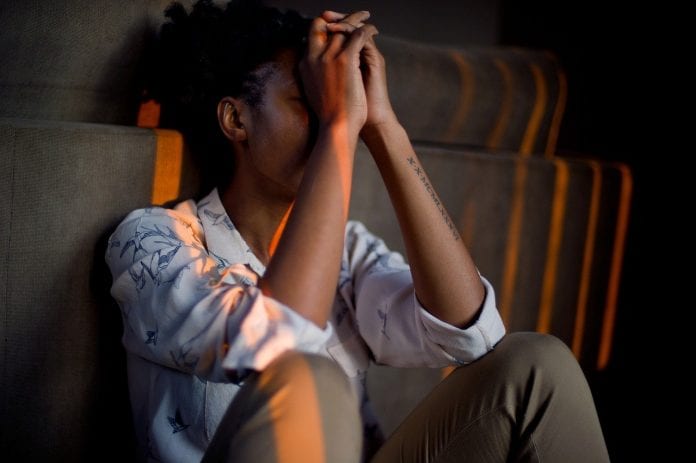An incredibly sad and frightening scenario is unfolding in the Gauteng public healthcare system with the major impact being on the Cancer services. We all reacted with shock and many of us braced for the impact of the fire at Charlotte Maxeke, Johannesburg’s largest academic hospital on the 16th of April 2021. Just weeks before the fire, a fire safety audit at the hospital was signed off. It is alleged that smoke detection systems, fire alarms, sprinkler systems and the mechanisms that would have triggered the magnetic smoke doors were not in working order, as well as fire hydrant couplings that were faulty. April’s fire comes just three years after Charlotte Maxeke Hospital’s Oncology department suffered a series of public setbacks including frequently broken machines and allegations of staff shortages.
The impact can probably be compared to a terribly slow festering wound with no chance of healing any time soon, a very fractured health care system which is heading towards a humanitarian crisis. Public sector chemotherapy and radiation cancer treatment in Gauteng is limited to three hospitals Steve Biko Academic hospital in Pretoria, Chris Hani Baragwanath Academic Hospital in Soweto, and Charlotte Maxeke Academic Hospital in Johannesburg. Before the fire Charlotte Maxeke Hospital treated 4 700 regular cancer patients monthly and started 300 on treatment every month. As a result of the fire Chemotherapy has been delayed by a few weeks and radiation probably by years with radiation machines still not working (this prior to the fire). Patients from 2019 are still waiting for radiation.
Breast Cancer is the most commonly diagnosed cancer among woman in South Africa with poor access to early screenings, many women are diagnosed late, says head of the Helen Joseph Breast Clinic Prof Carol Benn. Most of Prof Benn’s patients will eventually need radiation. According to Louise Turner CEO of the Breast Health Foundation 750 former Charlotte Maxeke patients went without cancer treatment for at least three weeks after the fire. In addition, many newly diagnosed patients have spent weeks without being referred for care. Charlotte Maxeke patients are now finally being treated for chemotherapy at Chris Hani Baragwanath Hospital in Soweto and for radiation at Steve Biko Academic Hospital in Pretoria. Radiation treatment at Steve Biko is only given to serious cases or cases of emergency.
As a Oncology advocate/ patient navigator at the Helen Joseph Hospitals Breast Care Clinic, Machi Filotimo Cancer project and ROCSI, the sadist thing for me is seeing the effects on the patients and their families. A patient struggling to hold back the tears. Diagnosed with an advanced breast cancer. She was told that she needed radiation six weeks after surgery it has now been five months without radiation treatment. She has been forced to seek treatment in another province.
Another patient diagnosed with an aggressive breast cancer in early February and was scheduled to start chemotherapy on the 23 April, by the time of the fire the lump in her breast had doubled in size. She finally has been scheduled to start chemotherapy at Chris Hani Baragwanath after almost four months after she was diagnosed with fast growing breast cancer. And still she was turned away. The Doctor informed her that she would not be receiving chemo that day because of the delay caused by the fire, her scan was too old. No scan, no treatment. She will have to wait another week.
In South Africa’s private medical sector 80% of Oncology’s Health care work force serves 20% of the population. Only 15% of our population have access to private healthcare like that of high-income countries, while the remaining 85% must get by with the inadequate public health care service.
The Charlotte fire as well as the Covid-19 pandemic has just exacerbated the long list of barriers faced by our public health Oncology Patients. To add to delays in treatment, transport barriers traveling long distances to seek specialist care, long waiting times to see Doctors and receive treatment and medication, language, and cultural barriers. Long waiting times for Pathology/histology results post-surgery delaying the start to treatment. The need for more regional and specialised hospitals to serve our population.
WHAT CAN WE DO?
We need to advocate to be the voice of the voiceless. Health advocacy supports and promotes patient’s health care rights and enhances community health and policy initiatives that focus on availability, safety, and quality of care. We need to encourage our patients to speak up share their stories in mainstream media and social media.
The Cancer Alliance a collective group of Cancer Non-Profit Organizations which adopts a human rights-based approach to Cancer Care that acknowledges that access to service is a matter of social justice promoting advocacy to give that voice to the voiceless promoting accountability, leadership, passion, integrity, and improvement.
Cancer Control Policies.
The National Cancer strategic framework for SA was set up in 2017 – 2022 the aim to set up health policies to reduce the burden of Cancer among all of our people. The policies for Breast Cancer, Cervical Cancer and Palliative care were approved in 2017 – 2022 but are yet to be implemented. The Prostate Cancer and Childhood Cancer Policies are in development and were due to be approved at the end of 2020. The problem is that National Department of Health approves the Policies, but it is up to each individual Province to implement.
Access to Medicine (A2M) Campaign. Availability and Affordability = Access. Medicines are central to the fight against Cancer. Having access to the right medicine at the right time literally makes the difference between life and death. Many of these lifesaving drugs are not available in South Africa or may only be available in the private sector and if they are available may be to expensive. Only the rich or those with substantial medical insurance can afford them. The reasons why they are so expensive and why they are not available, are complex and solutions are not easy to find. This is the purpose of (A2M). A lot has to do with South Africa’s archaic Intellectual property act and the patent laws.
National Health Insurance (NHI) the purpose is a health financing system designed to pool funds to provide to provide access to quality, affordable personal health care services for all South Africans based on their health needs irrespective of their socio – economic status. This is so desperately needed the question is will it work? With the history of corruption in our Government, we can only hope. The Constitution recognises health care as a fundamental human right, but with the current system this is not the case. Patients need to speak up. Nelson Mandela said healthcare cannot be a question of income it is a basic human right.















